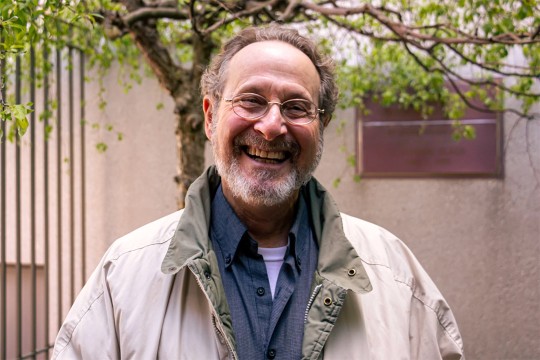CITY–RIT Establish Public Safety Center
PSIC will create public safety and anti-crime policies and initiatives based on data research of Rochester crime trends and patterns. For example, by studying the relationship between violent crime and truancy, the city could better understand how to allocate resources to truancy programs.
“This is about using data to drive decisions on how we spend our resources to reduce crime and violence,” Duffy says. “It’s about saving lives and making our city safe for our residents. I want to thank President Simone for generously donating space and resources to make this partnership possible.”
RIT President Albert Simone adds: “The new center will be a national model for how universities and cities can provide strategic crime-fighting solutions, using technology as a tool. We look forward to working with Mayor Duffy’s administration on this proactive program. Reducing crime is not just the city’s problem; this is an issue for all of Greater Rochester.”
RIT will supply the PSIC director and center location. Center director John Klofas, professor of criminal justice at RIT and chairperson of the department, will serve as a loaned executive to the city for two years.
Chris Delaney, a crime analyst at the Rochester Police Department and an RIT alumnus, will also serve as the center’s assistant director.
“This strengthens the existing link between the university with its academic resources and the city, and it provides additional tools for addressing the serious problem of community violence,” Klofas says. “We are looking forward to collaborative relationships with the city administration, the police department, the rest of the criminal justice system and the citizens of Rochester. Working together we will continue the progress against violence in our community.”
Support staff will include graduate students from the public policy department and undergraduate students from the criminal justice department at RIT. The center will seek funding for specific projects as it moves forward.
The center, to be housed at RIT, will function under the guidance of the mayor with an advisory board made up of community members and professionals from across the criminal justice system.
In addition to creating a community anti-violence plan and targeted public safety initiatives, PSIC will be charged with a number of responsibilities, including to:
- Organize and coordinate ongoing collaborative planning processes already in place, such as IMPACT, Ceasefire and Project Safe Neighborhoods.
- Monitor, analyze and report on Rochester crime trends and patterns. The center will become part of the Rochester Police Department’s Crime Analysis unit in charge of analyzing and evaluating criminal statistics.
- Develop original crime policy ideas for consideration by participating agencies; become a “best-practices” resource by reviewing and analyzing national and international crime interventions.
- Conduct research on local crime policies, programs and practices.
- Conduct original survey research on criminal justice issues in the local community, including offender interviews and customer perceptions of law enforcement service.
- Support the development, implementation and evaluation of criminal justice and community-based anti-crime and anti-violence interventions.














